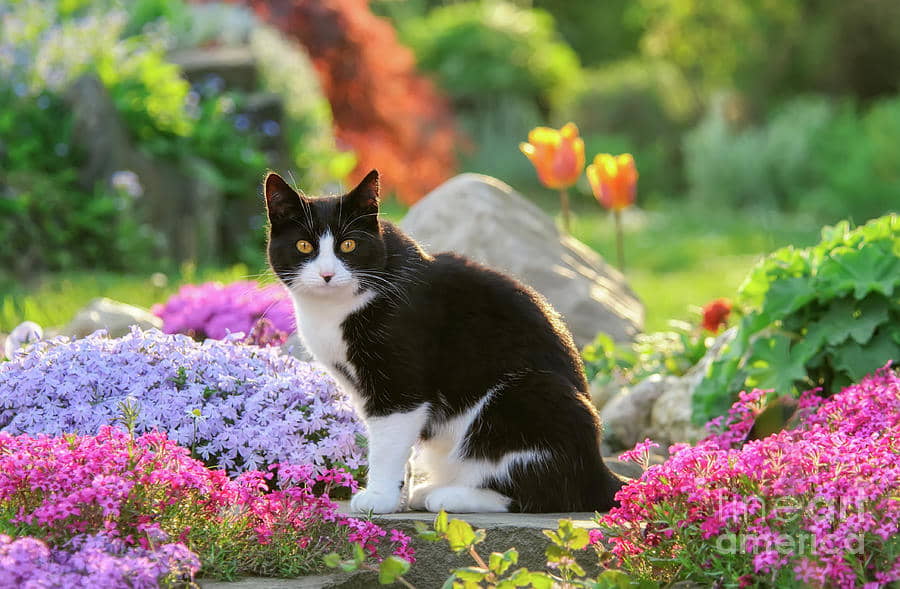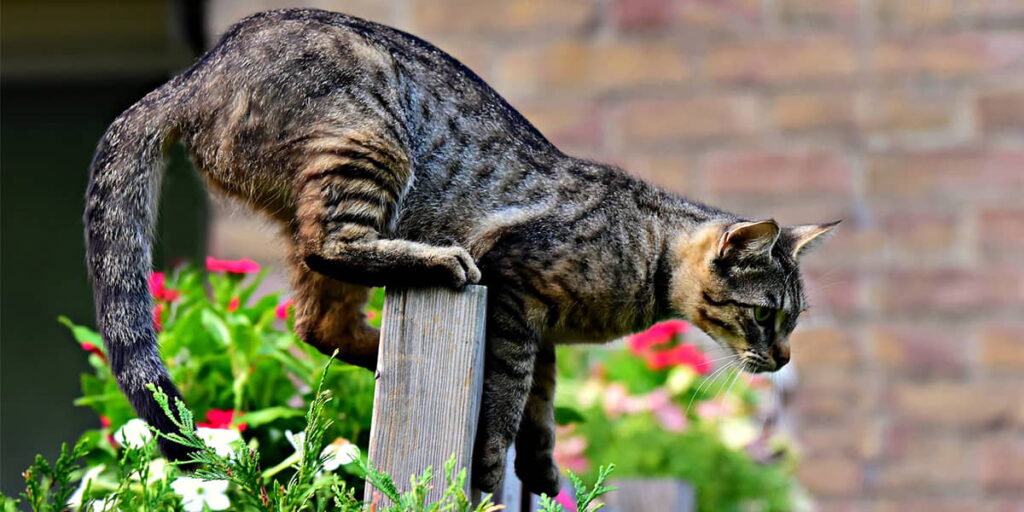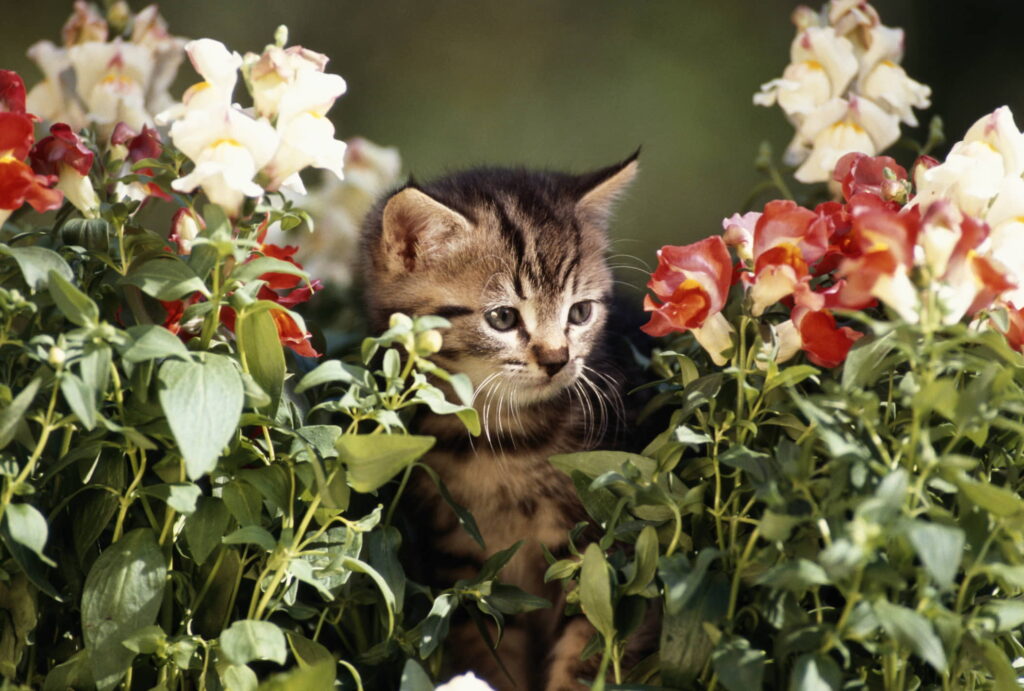By Jennifer Sellers, Catfoodsite contributor
As a responsible, loving pet parent, you probably know that the safest, healthiest lifestyle for your cat is one that’s indoors. Unfortunately, many of your neighbors may feel differently. As a result, your garden could be doubling as a neighborhood litter box. Not only is this unsanitary – especially if you’re growing produce – it can be destructive to your crop and unhealthy for you if your neighborhood cats are carriers of certain bacteria. Not to mention, digging can lead to potential root damage.

Of course, from a cat’s point of view, a bed with fresh mulch or turned soil is a welcoming spot to take care of business.[1] Fortunately, there are a number of ways to make your garden a feline-free zone:
Keeping Cats Out of your Garden
There are several tried-and-true strategies homeowners use for keeping cats and other critters out of their gardens. Here are some of the most effective and humane:
- Ultrasonic devices. These products emit an unpleasant sound at a frequency cats can hear but humans can’t. Many are motion-activated and only go off when an animal is nearby.
- Motion-activated sprinklers. Like the ultrasonic devices, these sprinklers are only activated when a cat comes near. The jury’s still out on whether or not marigolds are an effective cat deterrent. But don’t worry; it’s not harmful, just momentarily unpleasant.
- Chicken wire fencing. If you’re just starting a garden, lay chicken wire at ground level or just below the soil. You can create holes in the wire large enough for your plants to grow, but the texture of the fencing will make walking in your garden uncomfortable for cats. Just be sure there are no sharp edges jutting up out from the soil!
- Unpleasant odors. Alley Cat Allies recommends citrus scents such as lemongrass, citronella, and orange or lemon peels. Coffee grounds, vinegar, lavender oil, eucalyptus oil, and tobacco can also deter cats. Experiment with which scents or combinations of scents work. Just remember that whatever you choose will have to be replaced from time to time as the potency of the scent wears off. Also, be aware that some of these substances can harm your plants, and that means you should place them around, not in, your garden.
- Plant marigolds or rue. An unexpected burst of water is really a highly effective deterrent for cats, as most felines dislike getting wet. Many gardeners swear by marigolds, but if they don’t work for you at least they’ll be a lovely addition to your garden. And don’t worry; they’re not toxic to pets. Rue is recommended by Alley Cat Allies.

Create a Cat-Friendly Oasis Elsewhere
A clever way to keep cats out of your garden is to redirect them to an area of your yard where you don’t mind their presence. You can do this by creating a separate spot that’s appealing to cats. Fine-grained sand, catnip and catmint are irresistible to most felines. Just be aware that cats like clean areas, so if you don’t remove their waste every once in awhile, they will eventually relocate to areas where they’re unwelcome (like your garden).

Be a Good Influence on Your Neighbors
When possible, and without coming on too strong, share with your neighbors why you keep your cats indoors. Mention to them the concerns you have about the health and safety of cats in your neighborhood. For instance, if you saw their cat possess a close encounter with an automobile, tell them! And, finally, let them know that if they do decide to make their cat a full time indoor cat you have plenty of tips and advice you can share with them.
Wondering about Declawing Cats – Pros & Cons? Check it out on our latest post!
